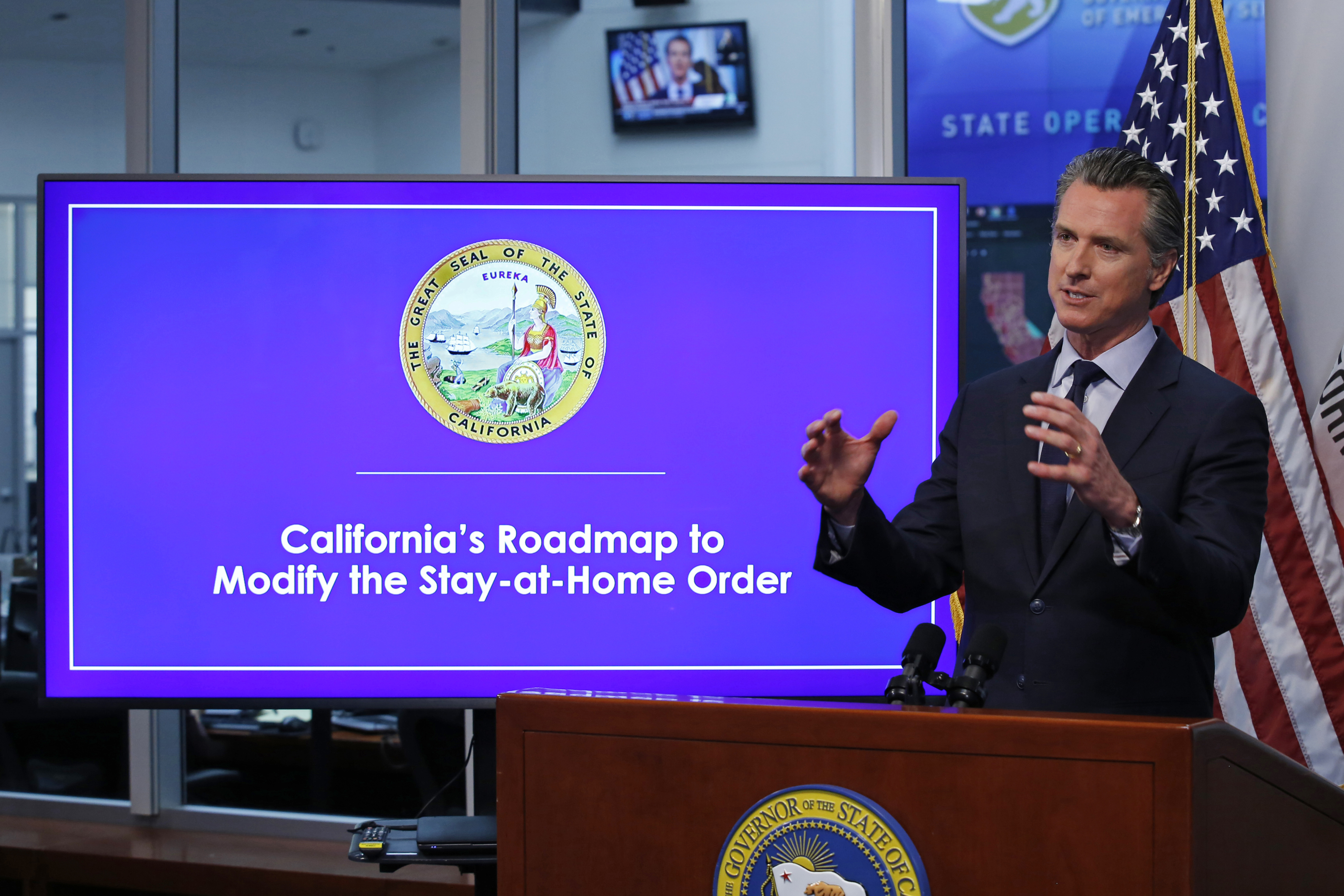Health officers in six Bay Area counties and the city of Berkeley warned residents Thursday that the regional coronavirus shelter-in-place guidelines will remain in place through at least May 31 despite Gov. Gavin Newsom's announced changes to the state's order.
While state health guidelines will allow more restaurants and retail stores to operate with curbside pickup and delivery, health officers from Berkeley and Alameda, Contra Costa, Marin, San Francisco, Santa Clara and San Mateo counties will continue to prohibit curbside pick-up at non-essential, non-outdoor businesses.
"We need to continue to work together so those sacrifices don't go to waste," the seven jurisdictions said in a joint statement. "It is critical to maintain our gains."
During a Thursday afternoon news conference, Newsom and state Health and Human Services Secretary Dr. Mark Ghaly said that the state will slightly loosen its health and safety guidelines starting Friday, allowing manufacturing facilities, some retail stores and other "low-risk" businesses and industries to resume operating, provided that they enforce state health guidelines like physical distancing.
The Bay Area's revised order that went into effect Monday only permits businesses that operate primarily outside to resume operating. As a result, construction projects and real estate transactions could be completed and retail nurseries, landscapers and gardeners could reopen for business.
"We know that COVID-19 has impacted different communities and different counties across the state in very different ways," Ghaly said. "There have been some counties with few cases and no deaths for many, many days and that has contributed to the excellent data that we've seen across the state."
In addition to the modifications announced Thursday, Newsom and Ghaly said state officials are discussing how to safely allow the resumption of seated dining in restaurants and the operation of shopping malls, offices that have not been able to work from home, and outdoor museums.
State officials have monitored six factors in deciding when to begin reopening the state's economy, including the number of coronavirus tests conducted each day, the strain on the state's hospital system, and the state's capacity to vacillate between strict and looser shelter-in-place guidelines.
Coronavirus Deaths in Your City and State — and Across the US
These charts use daily coronavirus death data from Johns Hopkins University to show the seven-day moving average of deaths at the city, state and country level.
The impact of coronavirus varies enormously in the United States from one place to another.
Source: Johns Hopkins University.
Credit: Visuals by Amy O’Kruk/NBC, data analysis by Ron Campbell/NBC
Newsom said more than 843,000 coronavirus tests have been conducted across the state and the state is averaging around 30,000 tests per day, half of the state's goal of 60,000 to 80,000 tests daily.
The spike in testing has allowed multiple jurisdictions -- including Los Angeles, Napa and Contra Costa counties -- to make coronavirus tests available to all residents, not only those with symptoms or a doctor's referral.
"This is an iterative process," Newsom said of reopening the economy. "It is a dynamic process. This is not etched in stone. We want to continue to work with people across sectors and to address unintended, not just intended, consequences of these meaningful modifications to the stay-at-home order."
"We share the urgency to reopen and restore our economies and our normal activities, and the equal importance of doing so in a way that is safe, responsible and does not cause a significant increase in serious illness and death, or overwhelm our health care delivery systems," the seven jurisdictions said in their statement.



